By clicking a retailer link you consent to third-party cookies that track your onward journey. This enables W? to receive an affiliate commission if you make a purchase, which supports our mission to be the UK's consumer champion.
Best smart thermostats 2026: tried and tested by Which? experts

In this article
- The smart thermostats we tested
- More smart thermostats from our tests
- How we test smart thermostats
- What is a smart thermostat and how does it work?
- Is it worth getting a smart thermostat?
- Which smart thermostats offer the best software and security support?
- Installing a smart thermostat: what you need to know
Smart thermostats allow you to remotely control your home's temperature and heating schedule. Used properly, they can potentially save you money on your heating bills and reduce your boiler's environmental impact.
Plus they can offer you a level of reassurance traditional thermostats can't. For example, you could turn your heating on when you're travelling back from a weekend away, or off if you realise you've accidentally left it on when you're about to board a flight.
Like a smart meter, most smart thermostats can show you how much you're using your heating, letting you keep a closer eye on your energy bills. Some can also monitor how you heat your home and learn your routine, allowing you a more hands-off approach to scheduling your heating.
Unlike many other review sites, we test every smart thermostat for potential security flaws and flag them in our reviews, so you can rest assured that if you buy one of our recommended products, your personal data will stay private.
How our tests find you the best
We've tested 30 smart thermostats
To help you choose what to go for we assess the most popular smart thermostats from big brands and at different price points to ensure you get the best value and performance.
Thermostat function and accuracy
There’s nothing smart about a thermostat that can’t accurately record the temperature and respond accordingly. We use a temperature-controlled chamber to check.
Ease of use
Find out about any annoying quirks before it’s too late. Our experts flag all ease of use issues with the smart thermostat itself and its accompanying app.
We also test...
Privacy and security. All thermostats go through a barrage of tests to check how well they protect you from hacking attacks, and keep your data secure and private.
The smart thermostats we tested
The biggest brands and the 10 most popular smart thermostats are listed below.
Only logged-in Which? members can view the smart thermostat test results below.
Join Which? to get instant access to our test results and Best Buy recommendations below.
| Smart thermostat | Price | Test score | Ease of use | Thermostat function | Features |
|---|---|---|---|---|---|
Sign up to reveal Get instant access to this and all our scores and recommendations Unlock tableDigital £8.99 per month, cancel any time. Already a member? Log in | 83% | ||||
| 82% | |||||
| 81% | |||||
| 79% | |||||
| 77% | |||||
| 75% | |||||
| 74% | |||||
| 73% | |||||
| 70% | |||||
| 68% |
Sign up to reveal
Get instant access to this and all our scores and recommendations
Unlock tableDigital £8.99 per month, cancel any time.
Already a member? Log in
Dates tested: October 2025, November 2023, October 2023, December 2022, July 2022 and April 2020. Page last checked: December 2025. We're not able to show every retailer and cheaper prices may be available. We've tested 30 smart thermostats in total, but the table shows our top picks only.
A selection of the smart thermostats we tested are listed in alphabetical order, below.
Only logged-in Which? members can view the best smart thermostats from our tests.
Join Which? to get instant access to our test results and Best Buy recommendations below.
Bosch Room Thermostat II

Most recently tested November 2023
Need to know Self installation, no hot water control, program modes, frost protection, child lock
Drayton Wiser Thermostat Kit I

Most recently tested October 2023
Need to know Professional installation recommended, can control hot water, learning thermostat, program modes, frost protection, weather responsive, child lock
Google Nest Learning Thermostat (Gen 3)
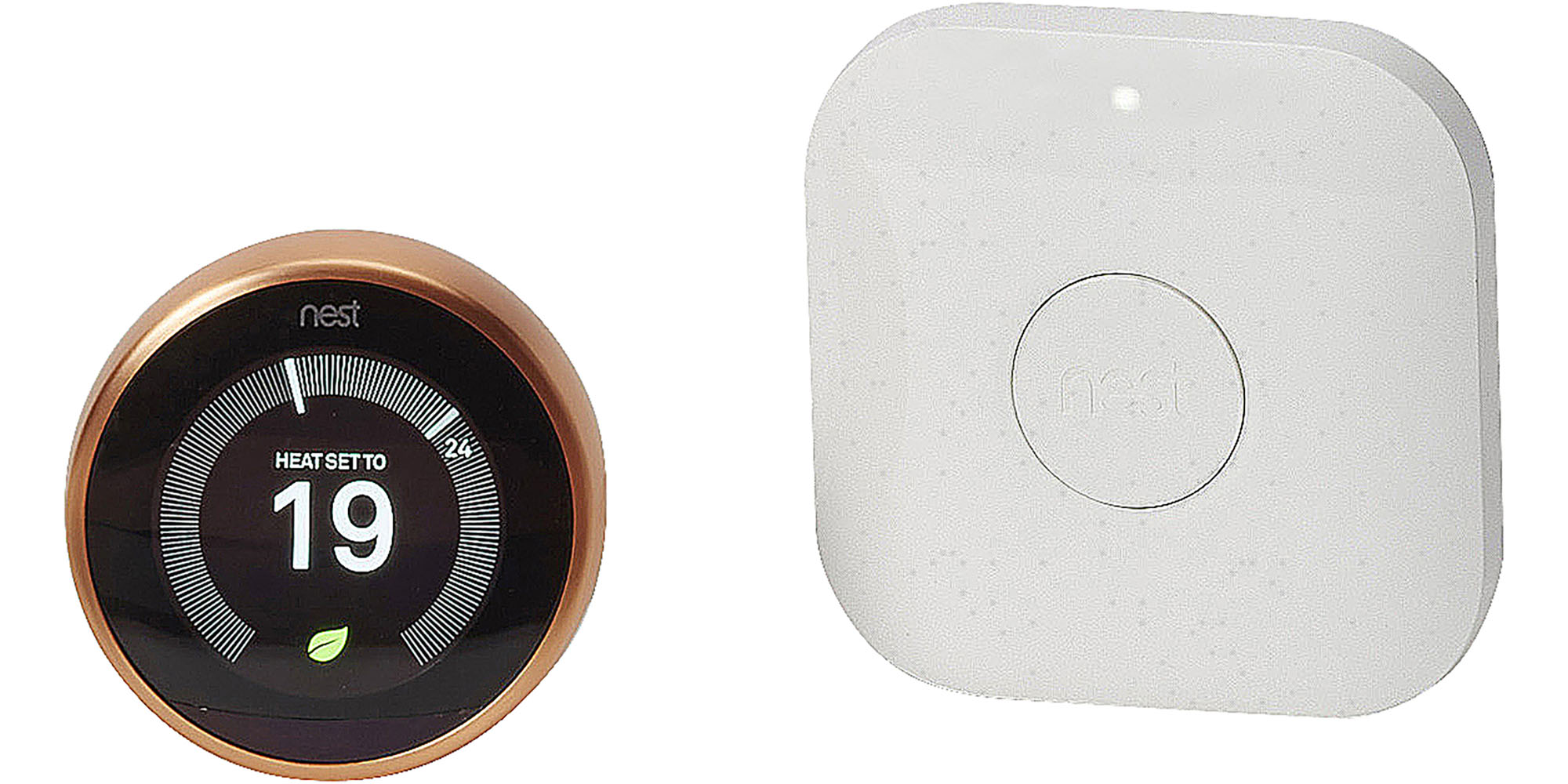
Available from Google (£219)
Most recently tested October 2025
Need to know Professional installation recommended, modulating and learning thermostat, can control hot water, frost protection, GPS tracking, motion sensor, program modes, child lock
Google Nest Smart Thermostat E
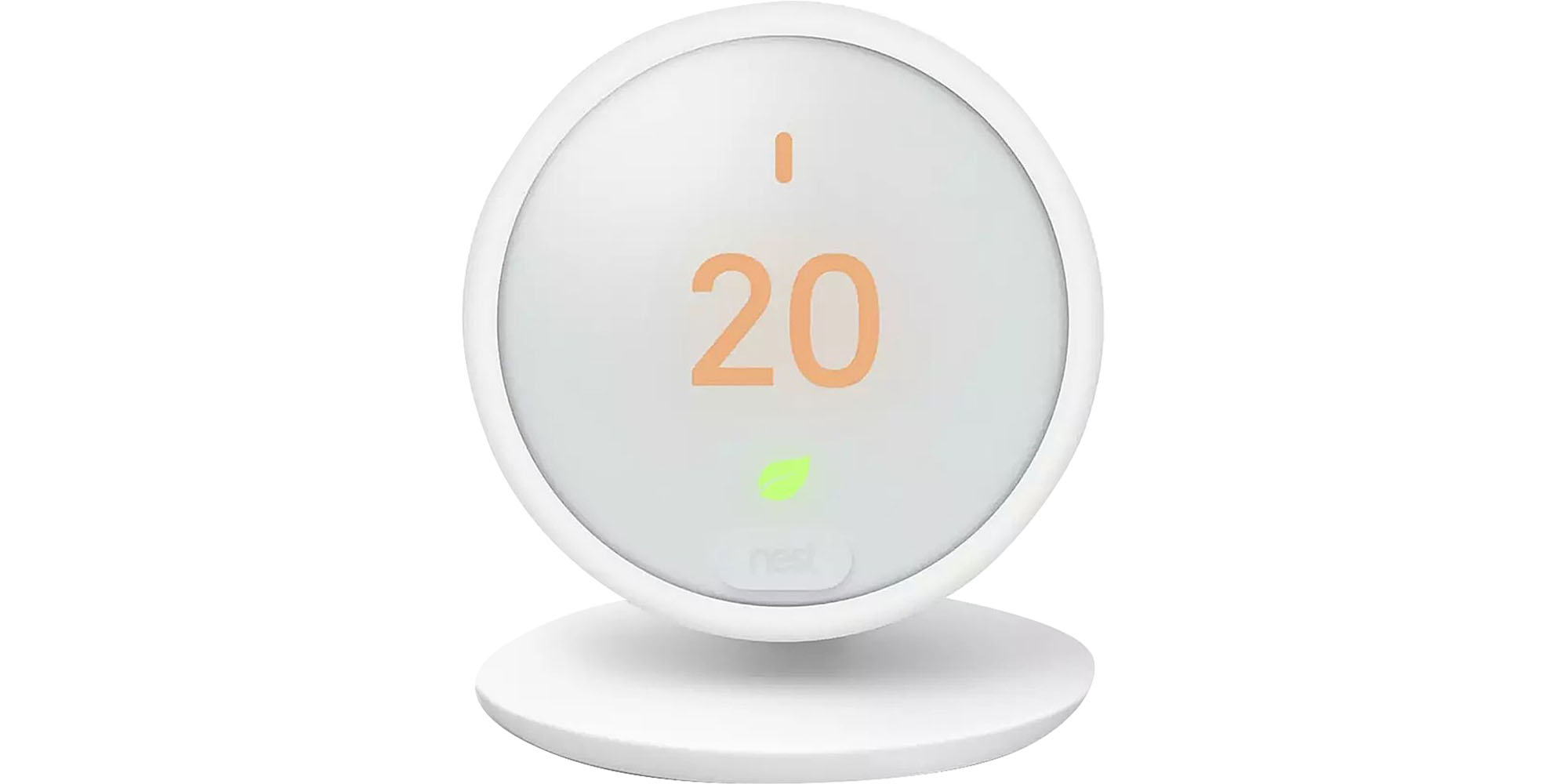
Need to know Self or professional installation, modulating and learning thermostat, no hot water control, frost protection, GPS tracking, motion sensor, program modes, child lock
Hive Thermostat V4
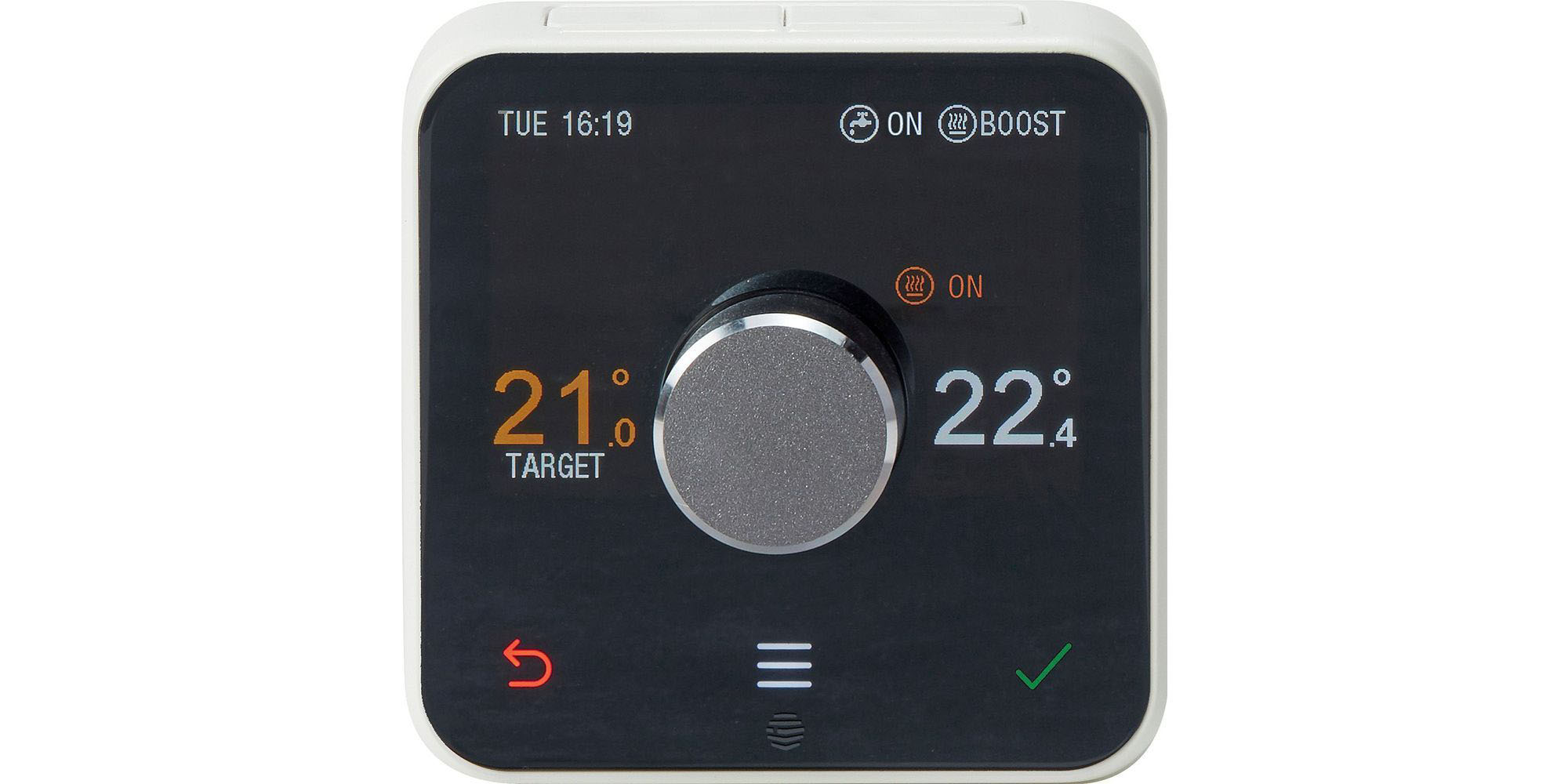
Most recently tested October 2025
Need to know Professional installation recommended, can control hot water, frost protection, GPS tracking, program modes, child lock
Hive Thermostat Mini V4
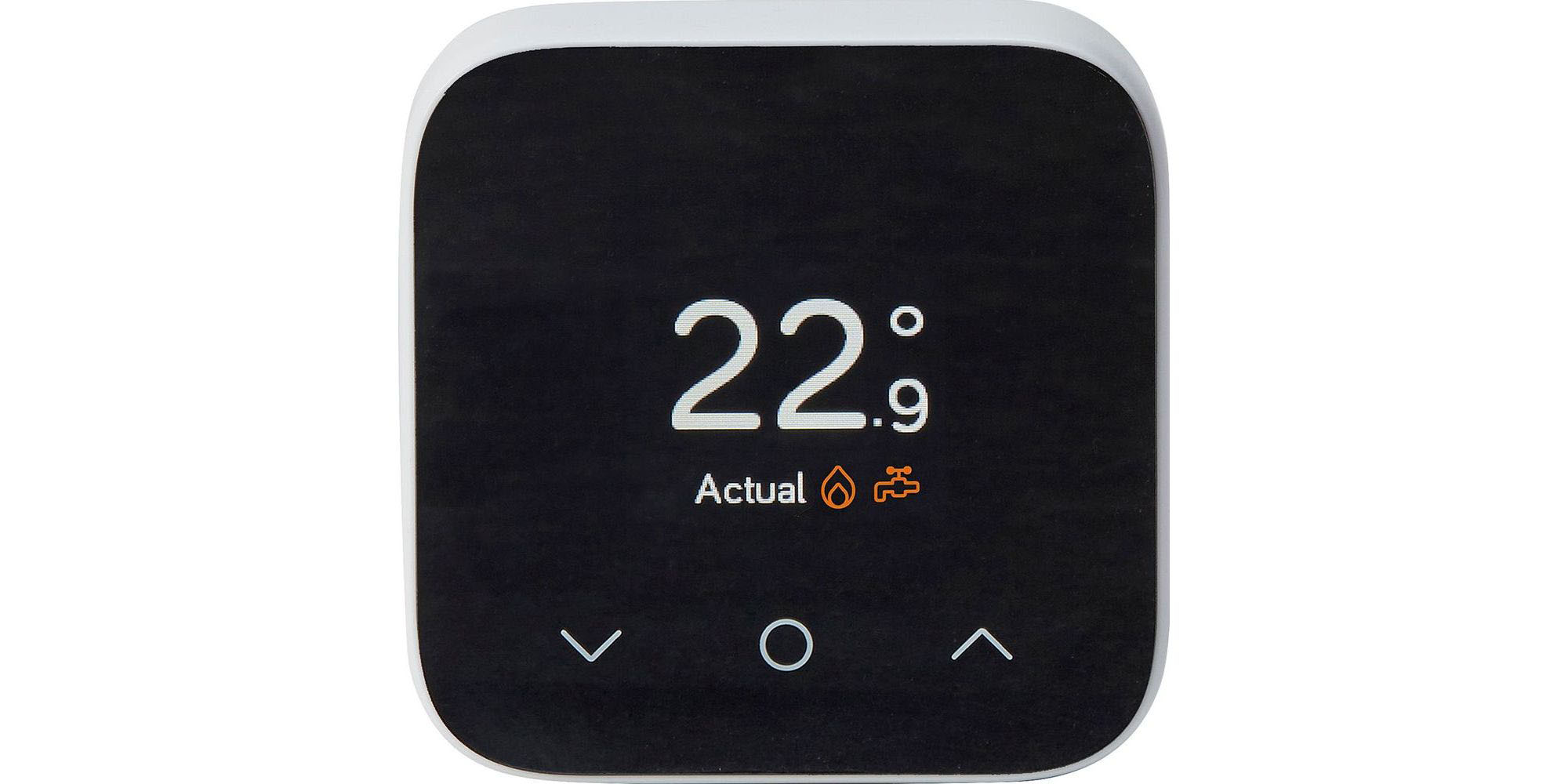
Most recently tested October 2025
Need to know Professional installation recommended, can control hot water, frost protection, GPS tracking, program modes
Honeywell Evohome Wi-Fi Connected Thermostat Pack

Most recently tested April 2020
Need to know Professional installation recommended, no hot water control, frost protection, learning thermostat, program modes, child lock
Honeywell Lyric T6R

Most recently tested December 2022
Need to know Professional installation recommended, no hot water control, modulating and learning thermostat, GPS tracking, frost protection, child lock
Tado Smart Thermostat X
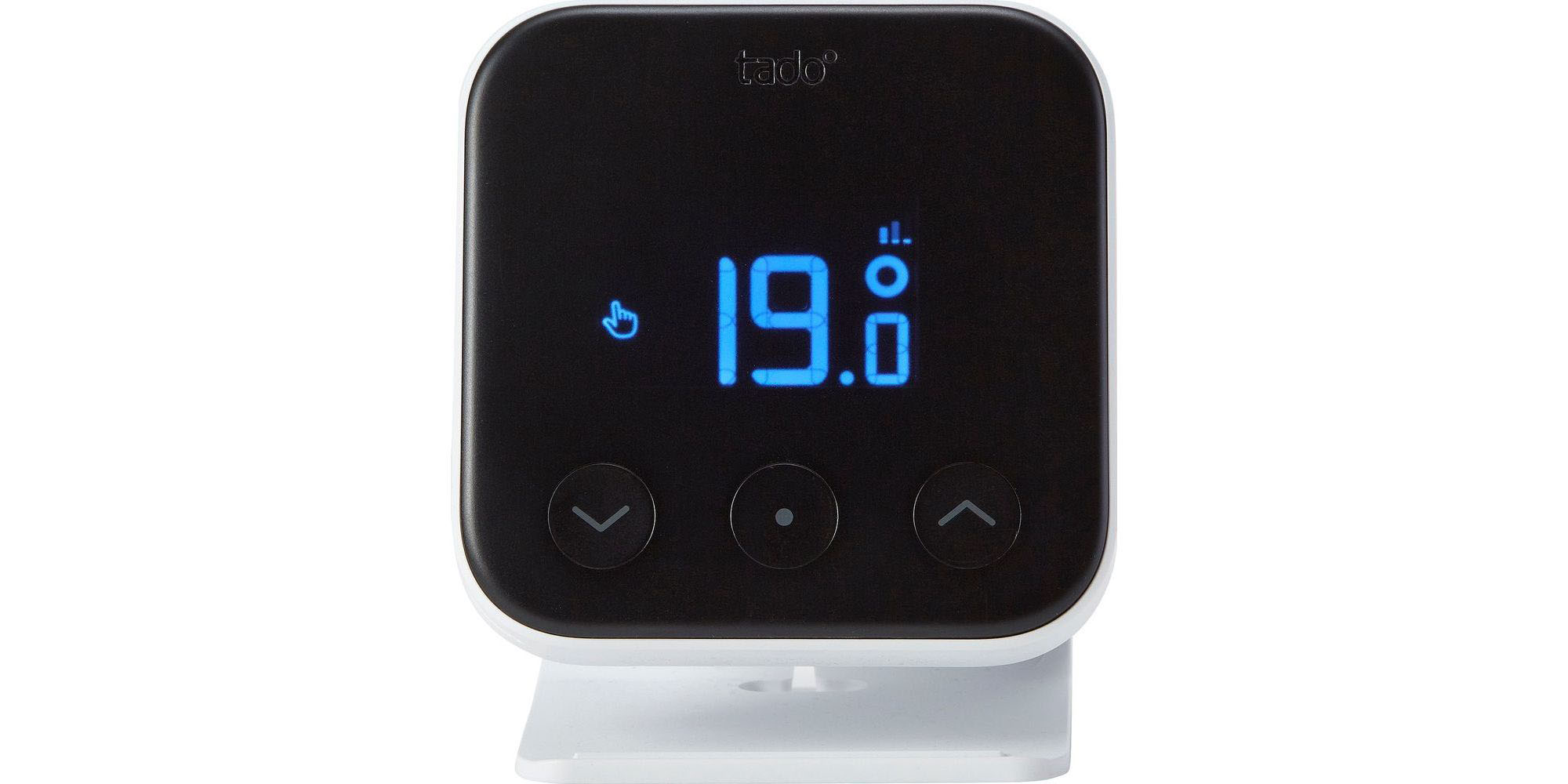
Most recently tested October 2025
Need to know Professional installation recommended, no hot water control, modulating and learning thermostat, GPS tracking, frost protection, weather responsive
Worcester Bosch EasyControl Smart Thermostat

Available from Screwfix (£170)
Most recently tested April 2020
Need to know Professional installation required, can control hot water, modulating thermostat, GPS tracking, motion sensor, weather responsive, program modes
More smart thermostats from our tests
Here’s how the rest of the smart thermostats from our tests measured up, listed in alphabetical order.
| Smart thermostat | Price | Score | Ease of use | Thermostat function | Features |
|---|---|---|---|---|---|
| Drayton RF901 | SQUIRREL_TEXT_50011779 | ||||
| Energenie MiHome | Comet(£69) | ||||
| Netatmo Thermostat | SQUIRREL_TEXT_12879326 | ||||
| Salus IT800 WiFi | SQUIRREL_TEXT_50022495 | ||||
| Tado V3+ Smart Heating Thermostat Starter Kit | SQUIRREL_TEXT_12877219 | ||||
| Wundasmart Starter Kit | Wundasmart(£199.99) (Out of stock) |
Dates tested: October 2025, November 2023, October 2023, December 2022, July 2022 and April 2020. Page last checked: December 2025. We're not able to show every retailer and cheaper prices may be available.
How we test smart thermostats

Only the best smart thermostats excel in all of these areas:
- Ease of use We assess how easy each smart thermostat and its accompanying app are to use. This includes scoring for ease of installation, ease of connecting to wi-fi, and ease of adjusting settings and programming schedules.
- Thermostat function and accuracy We put smart thermostats in a temperature-controlled chamber, measuring how accurately they record the temperature, and how long it takes for them to trigger the relay after the temperature drops below the selected threshold.
- Features Some smart thermostats come with a range of features that make life easier, such as frost protection, weather response and a child lock. Our reviews run through all the features of each smart thermostat so you can make sure you buy one that meets your needs.
- Security testing All thermostats go through a barrage of tests to check how well they protect you from hacking attacks, and keep your data secure and private. If our tests flag up any causes for concern – whether it's a weakness to being hacked or problems resetting the thermostat if you want to pass it on – we will contact the manufacturer and work with the brand to fix it.
We regularly revisit the smart thermostats on sale to see if there are any more popular brands that need testing and when we find them we do.
Find out more about how Which? is not influenced by product manufacturers or retailers and how your support helps us to stay editorially independent
What is a smart thermostat and how does it work?
Like a normal thermostat, a smart thermostat allows you to schedule your heating, with the aim of saving you money on your heating bills and reducing your boiler's environmental impact.
With a thermostat that is smart, you also can control the heating remotely using an app on your smartphone or via a website. For example, you could turn the heating on when you're travelling back from a weekend away. Or, if you go away and then realise you've left the heating on, you could turn it off using your phone.
Like a smart meter, most smart thermostats can show you how much you're using your heating, letting you keep a closer eye on your energy bills.
Some smart thermostats also monitor how you heat your home and learn your routine, allowing you a more hands-off approach to scheduling your heating.
Is it worth getting a smart thermostat?

Whether a smart thermostat is worth it or not depends on the model you choose and also how you use it.
If easy control is what you want, you're likely to get this by going 'smart' with your heating. Plus, if you don't already have a boiler controller installed (such as a 'dumb' thermostat or a boiler timer), then you could consider getting a smart thermostat to help you save money on your heating bills. However, it's less clear how much you'll save if you already have a device to control and schedule your boiler.
Most smart thermostats let you view and monitor how much energy you're using, making it easier to see where you could save money. Using multiple smart thermostats, or a smart thermostat with smart radiator valves, you can control the temperature on a room-by-room basis and make further energy savings.
Some thermostats will learn your routine (such as when you're out of the house or when you go to bed) and can automatically adjust the temperature for you. This means after a week or so after installation, you could start saving on your bills and use less energy without having to think about your heating again.
Here are some of the key potential money-saving features worth looking out for when buying a smart thermostat:
- Hot water control Some smart thermostats can be used to control your hot water, as well as your central heating. Being able to use an app makes turning on the hot water much more convenient. If you have a combination boiler, which provides hot water instantly when you turn on the hot tap or the shower, then you won't need a smart thermostat that does this.
- Multi-room control or zonal heating This lets you set different temperatures in different parts of your home from the same app, which could be useful if you have a larger property and only parts of it are in use at a time. To use this feature, you will have to buy either an extra thermostat or another connected device such as a smart radiator valve. With smart radiator valves, you can control each room's temperature and schedule individually. It's best to speak to a heating engineer before setting this up to ensure you're actually going to be making efficiencies.
- The ability to learn your routine Some smart thermostats are able to learn your routine and preferred temperatures, and program themselves accordingly. This saves you the trouble of having to program a schedule yourself, potentially offering savings without you having to do much extra work. Learning functions can also be turned off. So, if you don't like the schedule that the smart thermostat has come up with, you can switch back to manual control and program it yourself.
- The ability to modulate your boiler Some thermostats are able to communicate with your boiler using a common language. Different boilers have different languages (known technically as communication protocols), though the most common is called OpenTherm. When thermostats are able to communicate with boilers using a shared language, they can control boilers more efficiently. Rather than using basic on/off controls, the thermostat is able to coordinate with the boiler to vary outputs according to heating need. So rather than firing your boiler in spurts, your boiler will work less hard when a smaller effort is needed. This is called modulation. Not all thermostats can modulate, and you'll need a boiler-thermostat pair that can speak a common language.
- Motion sensors and GPS tracking The purpose of both of these features is to detect when you enter and leave your home and adjust your heat settings accordingly, turning the heating down when you've left, and pre-heating your home when you're on your way back. This feature is most useful if you're in and out of your home at irregular times, as otherwise you can simply rely on the schedule.
Be aware that a smart thermostat doesn't solve underlying lifestyle choices or poor property insulation issues. While a learning thermostat can help, if you're likely to forget to use the app, or want your heating on full blast all the time, then you're unlikely to save money with a smart thermostat. Similarly, if you have a poorly insulated property, it's better to improve the energy efficiency of your home first.
Use our free Home Energy Planning Service to build a personalised plan to make your home more energy efficient
Which smart thermostats offer the best software and security support?

Software and security support are important considerations when buying a smart thermostat, dictating how long the brand will continue updating the device with new features and security patches, to guard against emerging threats.
We reached out to the biggest brands to find out more about support policies, and some are far better than others.
- Tado said it will offer an impressive 10 years of support for its products.
- Google appears to offer a minimum of five years of support.
- Drayton also appears to offer five years of update support from launch.
- Honeywell said it will offer two years support from when the product is last available to buy.
Other brands, including Netatmo, Energenie, Salus and Eve didn't provide us with specific information on update support periods.
Also notable is Hive, which announced it will discontinue Hive security cameras and Homeshield devices. Its smart thermostats and radiator values will still be supported into 2026.
While you may not be at immediate risk if you're using a device that's unsupported, it's obviously desirable to buy and use a device that you know will receive update support for a decent period of time. For more information, read our guide to smart devices and security.
Installing a smart thermostat: what you need to know
While a good number of smart thermostats are described as being able to be 'self-installed', our tests have found that some don't have clear enough instructions or diagrams for this to be the case. Unless you're a competent DIYer, or if the smart thermostat instructions don't say it can be self-installed, we'd recommend getting a professional electrician to do it.
The major smart thermostat brands have different recommendations on installation:
- Hive recommends professional installation of its smart thermostats.
- Google Nest recommends professional installation of the Nest Learning Thermostat but self-installation of the Smart Thermostat E should be achievable for most.
- Tado says its thermostats can be self-installed and we found the guidance they offer to be straightforward and simple to follow.
Use Which? Trusted Traders to find a reliable electrician near you:
Reduce energy bills
Use our free Home Energy Planning Service to build a personalised plan to make your home more energy efficient!
Start your plan